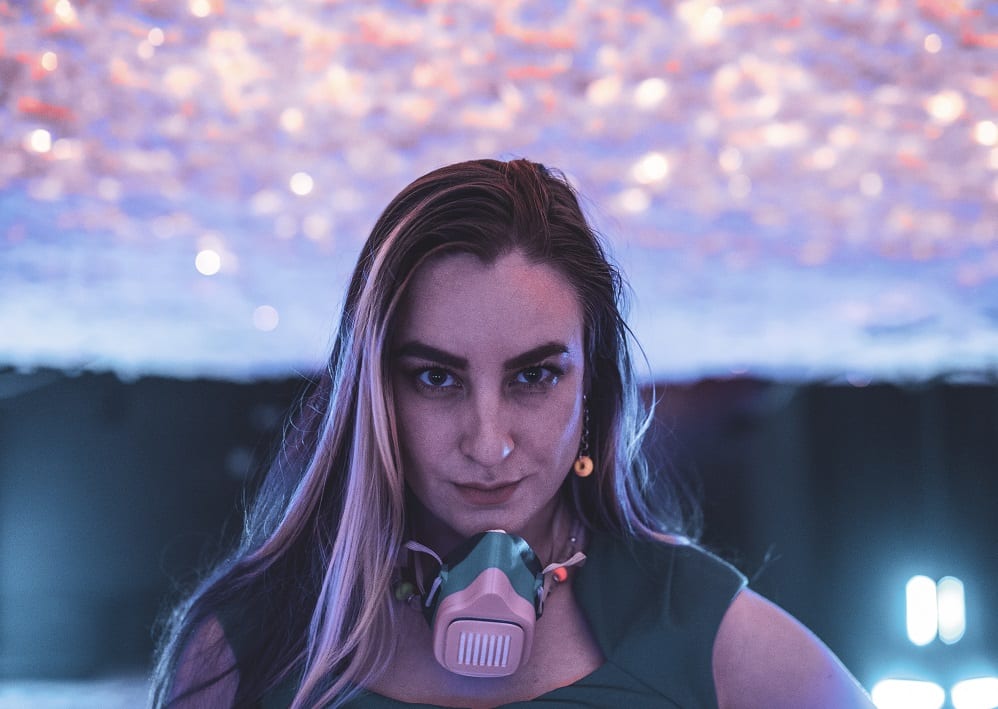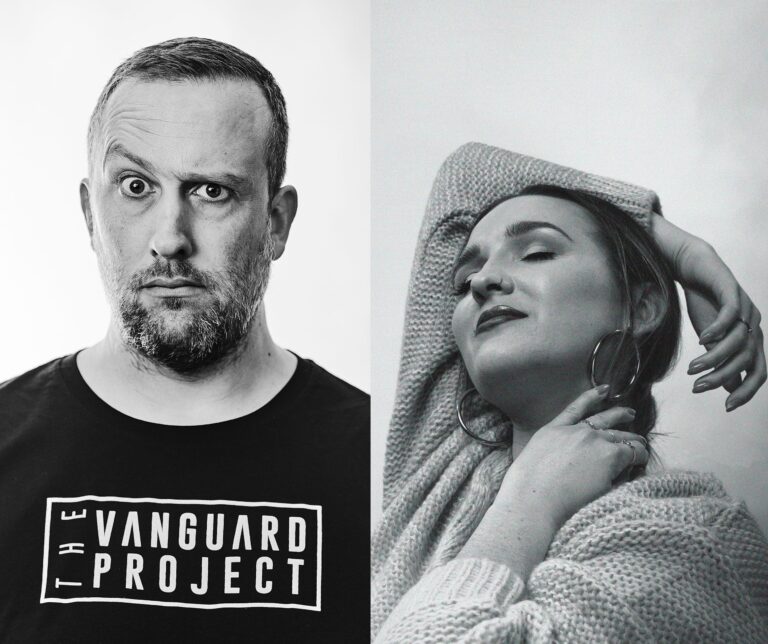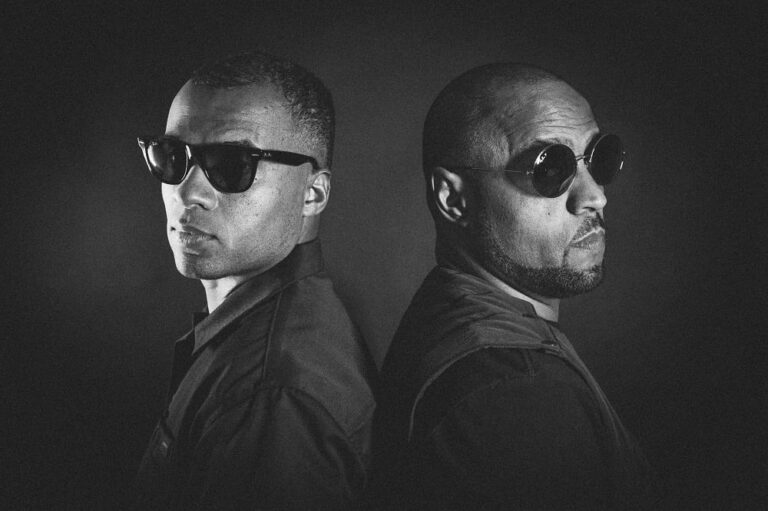“For all those years, I was told to be silent. When I wasn’t, I lost my gigs. I was harassed behind the decks, I was slandered relentlessly and manipulated so often in so many weird ways and was the target of cruel pranks. But most importantly, I witnessed so much blatant professional negligence, and honestly, criminal behavior by so many people. I will not be silent anymore.”
After 10 painful and frustrating years of staying silent out of pure fear that she’d lose all hope of her dream career as an artist, Kat Nvrsoft has spoken to UKF about her own personal experiences in the industry by industry professionals, including sexual misconduct (and what most of her country would label as statutory rape) bullying and emotional and social manipulation that began at the age of 17- and continued for the first eight years of her career.
Highlighting just how widespread this insidious behaviour is in the industry, Kat explains how we can move into a safe future for all womxn in the industry by learning how to identify it and how to help people who’ve experienced it. She is currently taking legal action against the people who harmed her- a group of people who own, run, staff, DJ, and promote for a prominent promotion company in her region – and she has asked us to help her take the step of speaking out publicly.
“The incident actually occurred in my first home I had ever lived in outside of my childhood home that I grew up in. I was 17 and just about to enter college and had started attending raves at 16,” Kat explains. “I knew him and his company from going to their parties. He and I spoke about the college I was attending, which he had graduated from. It honestly just seemed friendly to me, so when he came up to ‘help celebrate my (upcoming) 18th birthday,’ I simply wasn’t expecting anything… like that, you know?”
“When he came up, it evolved into something more than friendly,” Kat continues. “He would’ve been around my current age, 27, when this happened. I was sober, and I have to admit I didn’t oppose it at the time. However, I was not an adult; I was a teenager who was fresh out of high school, and honestly, coming to grips with the decade gap between us truly disgusts me. It wasn’t until I was raped again, years later, and won my case against that person, that I realised what had happened between myself and this promoter was truly wrong, and (in my home state and in many other states in America) could be considered statutory rape.”
Similar experiences persisted for many years. Incidents beyond physical attacks and nonconsensual sex included online harassment, sabatoging and blocking of her bookings and career opportunities, and real-life bullying (such as standing behind her during her DJ sets and verbally tearing her apart verbally during her entire set,) which led to her experiencing severe panic attacks and performance anxiety during most DJ sets; things that she still struggles with today, 10 years later.
Kat hinted at some of these experiences when we ran her first international interview in April 2019. Still in fear she would derail the career she’d worked so hard to achieve, and lose the label and family she had become a part of, Kat was careful with her words. The interview focused on her long-game mission and battles to contribute to an artistic form and culture that’s provided her with inspiration and drive during the darkest of moments in her life and how she’d been propelled into the international spotlight when she joined Shimon’s Audioporn collective. Even though she made it clear she’d had to fight hard for her voice to be heard in a male dominated industry, in light of her recent revelations, and understanding the pain she’d contained for so many years, the interview reveals an even harder reality.
“The last seven/eight years have been hard,” she told us at the time. “People aren’t always kind at home. But I keep seeing my friends come out, and the dancefloors filling up. That’s what’s really driven me through it a lot.”
It’s this support from her family, friends, colleagues and peers such as her agents (Cybergrove Agency) label and management (Audioporn) and recent incidents in the industry such as the #metoo movement, and the voices of fellow survivors (who have also recently gone public about their experiences at the hands of the same abuser) that have pushed her to speak out.
“I honestly have been terrified to say anything until now,” Kat admits. “I value my career and my art more than anything, and I really am so conscious of how easily it can be damaged, justly or not. But that’s no longer an excuse I can live with, nor do I believe that this will define me or truly damage what really matters to me. I want to, and have a duty to support the other survivors, do what I need to do to heal, and do my civic duty by taking appropriate action, and speaking.”

This issue is widespread and we’re only just beginning to see how endemic abuse and misconduct is in the dance music industry. DJ Erick Morillo taking his own life just days ahead of his court case where he’d face charges of sexual battery earlier this month is one example that’s highlighted just how many people have suffered by those with positions of power in the industry. Artists who have since come forward and admitted they too suffered abuse from Morillo include Swedish techno producer Ida Engberg and NYC D&B OG Empress.
Two particularly insightful pieces worth reading about Morillo’s behaviour and how the dance music industry has responded to it are Erick Morillo is just the tip of the iceberg, by writer Annabel Ross and We cannot continue to separate the art from the artist by writer Marco Sgalbazzini. Both articles highlight how many high level artists in house and techno still paid tribute to Morillo excusing his acts as ‘demons’ and ‘past misdemeanors’, exploring how sexual misconduct has been normalised and can be justified or over-looked in light of other things they’ve achieved. It’s true, none of us are perfect. But if personal imperfections involve any form of sexual abuse or misconduct or harm to people in any type of way, or witnessing it and remaining silent, then they are not excusable or justified in any way whatsoever.
No matter how good that person’s art is or how good their parties are. No matter how much of an opportunity they can offer you if you’re on their side. No matter how much money you can make, or ‘clout you can gain, with that person. Abusers must be identified and brought to justice. This is where we all have our duty and responsibility to call out any type of abusive behaviour and actions in the industry no matter. This is where progress is drastically needed. Kat explains how when she first reached out to mutual industry connections she was disappointed.
“You know, back then, I told people I really, really trusted and valued, who had important roles/influence in the company and local scene, about what happened and how I felt,” she explains. “At best? Nothing happened. Nothing changed. At worst? I got some new social hell or slew of gossip thrown at me. I gave up. It was exhausting and sad to keep going through. It wore me down.”
This is compounded by the fact that abusers – who use their positions of power and influence – work on fear tactics and threaten to shut you down if you don’t remain silent. “They do,” Kat agrees. “They also use it to suppress other competition, which leads to a monoculture of fear, crime, and abuse. We need to stop questioning survivors. I’m honestly very ashamed and disgusted by a lot of responses I’ve seen to this all coming out. Especially from other women.”
“I don’t believe in blind respect,” Kat continues. “No one is owed loyalty for having a vagina. However, I believe it’s very wrong, especially if you are a woman, to act against other women trying to speak. I can only speak for myself, but addressing this is a living nightmare for me, and has been terrifying and extremely difficult to have to tell my teams. I didn’t want to be seen as too big of a problem, or be seen as “that girl,” but at this point I know how much my teams and friends love and believe in me. So the worst part was knowing that telling them would hurt them all.”
“It really sucked being the ‘pony’ everyone bet against the most, but it is amazing to be the one that won the race in the end. And it is amazing to know that all the people you truly value, respect, and love…bet on you.”
Kat no longer has any affiliations with the individual and organisation she’s taking to court and hopes that other ex-peers and colleagues who experienced similar treatments will feel more confident to pursue justice themselves.
“Everyone in my home and region, all the survivors, the patrons of their shows, their artists and DJs, and all the former innocent staff members who have suffered due to their actions deserve real accountability, and deserve people to fight for them,” says Kat who has suffered acute Post Traumatic Stress Disorder since she was first abused.
“It’s really important to understand that PTSD from any instance of trauma is typically dormant and doesn’t become apparent, or “bloom,” for a decent period of time,” she explains. “People who suffer trauma usually first experience the brain going into survival mode: the brain tries to suppress or erase the trauma in our memories and day to day lives, or, it does the opposite: it overwhelms us with the experience of the trauma.”
Common characteristics of survivors who suffer PTSD include self-harm, drastic life changes and choices and sudden differences in behaviour that push people away. Especially those who care about them. If you identify any of these changes in a friend or peer then Kat explains that “the best thing you can do is not stigmatise or be harsh. If you can’t handle it, take space and let them be.”
“If you can, don’t let them isolate themselves, check in on them, and try to help them get legal, physical health, mental health, job and living resources as needed,” Kat continues. “I’d say it’s pretty true to say that human beings almost never ask for help when they need it. It’s so much easier and more helpful to have someone reach out, even if it’s just to do something small.
“Be the one to reach out. Be a safe place for that person to vent to. Listen. Ask them what they want and need and if you are in a position of privilege or power, use it for them. Assuming they want and wish for the help.”
For years Kat felt she simply couldn’t ask for help. “For a long time, I was foolish enough to believe the illusion they created,” she tells us. “I truly believed for years they had that power over me and could strike at any moment. Until now. Unfortunately for all of them, my eyes are wide open, and I won’t hold my tongue anymore.”
Looking back in hindsight, Kat is more reflective. “It really sucked being the ‘pony’ everyone bet against the most, but it is amazing to be the one that won the race in the end. And it is amazing to know that all the people you truly value, respect, and love… bet on you.”
The difference between the Nvrsoft who we interviewed less than two years ago and the artist who speaks to us now is like night and day. The journey she’s been on to get here, however, has been incredibly painful and should never have had to happen in the first place. It’s a journey that remains ongoing as her legal case continues. Sadly Kat is not alone, and she offers advice and support for anyone going through any type of abusive behaviour in the industry and in any other walk of life.
“I know this is probably immensely difficult for many to read, and some will simply dismiss it, but I hope people out there can see that healing and change is possible,” says Kat. “Support really, really does exist. You CAN achieve your dreams, even if you’ve had a shitty, bumpy, traumatic road leading up to it. And going through all the pain ends up being all worth it. It’s so hard, so many days, but it’s worth it. Here are a few things I want to leave with anyone who is reading…”
“Use your voice – tell someone. In your own time. Be brave enough to find and get the resources and help you need. File that police report. Even if nothing happens – it helps build a case for the next survivor, and you’ve done your part to try to protect others. Find a good lawyer. Don’t give narcissists, sociopaths or gossiping peasants in the peanut gallery a single benefit of the doubt. Protect yourself. Play smart. And whatever you do, keep going. I believe in you.”
No one should ever experience abuse, harrassment or misconduct in the music industry. For advice, support and information on how to help visit TIME’S UP Now
Follow Nvrsoft: Facebook / Soundcloud / Twitter


